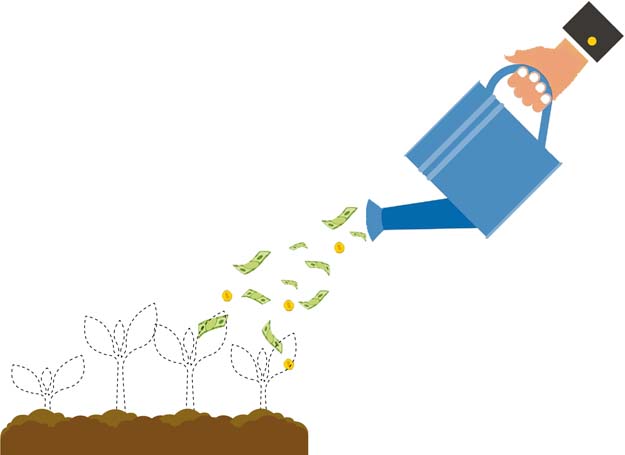
Most of the expenditure is based on consumption, leaving little space for productive investment. This lack of productive investment is detrimental from the perspective of long-run economic development.
Budget 2016-17: Going all-out to support agriculture sector, says Dar
Like previous regimes, the current one focuses on consumption. During FY16, the current expenditure was around 79% of the total expenditure, which resulted into lower development expenditure of 4.4% of GDP. When a government does not follow strict fiscal discipline the axe normally falls on the development expenditure.
Factors increasing expenditure
Akin to the previous regime, the current government keeps on increasing the salaries of the civil servants more than the inflation. Now every year civil servants expect a higher salary raise since their desire is deeply entrenched. In FY16, the reported inflation was around 3%, while the government provided a raise of 10% to its employees. The government intends to appease the civil servants closer to elections; therefore it resorted to this move in the last budget. Following the same logic, the government would again raise the salary of civil servants higher than inflation in the upcoming budget, which would further increase government consumption.
The provision of subsidies also falls under wasteful consumption. The case of tariff differential subsidy is instructive. Under this head, the government consumed Rs170 billion in FY16. The inability of Distribution companies (DISCOS) to recover bills from the electricity consumer resulted in lower revenue. This in turn compelled the government to allocate budget for DISCOS. In the absence of this subsidy, the government has to further escalate the electricity tariff. Unfortunately, the subsidy is unequally shared among honest and dishonest consumers.

In FY16, the government provided a subsidy of Rs5 billion under the head of national food security to the fertiliser sector, which was not initially announced in the budget – this became a hidden subsidy. In this populace move, the government provides fertiliser subsidies to mitigate the effects of either rising energy cost or lowering international commodity prices.
The intention is to safeguard the interests of the farming community. Through this subsidy, the benefits are unequally divided between the large and small farmers. The large farmer gets the maximum benefit out of this subsidy. When farmers get such kind of subsidy there is less incentive to increase the agriculture productivity. Hence the result is low agriculture productivity. There is enough economic evidence across other developing economies to support the idea that fertiliser subsidy is doled out to placate the large farmers. In the past, the subsidy had been phased out in order to enforce strict fiscal discipline. Then political considerations brought back this subsidy through back doors. This subsidy is neither highlighted as an agenda item nor debated in the parliament. The amount of this subsidy should be directed to development of irrigation and canal courses.
Sindh govt presents Rs869 billion budget
Observation/conclusion
The salary and benefits of civil servants should be raised according to inflation. There is a need to punish the dishonest electricity consumers. There is also a dire need to differentiate between unproductive consumption and productive investment. This differentiation helps in shifting the trend of government consumption to productive investment.
In a nutshell, the successive regimes borrow to finance their consumption expenditure since there is a lot of inertia in government consumption. Such spending doesn’t yield any returns. In order to step up the development expenditure, the government has to increase the fiscal deficit close to elections. The increase in fiscal deficit is financed through more borrowing, which results into high debt servicing and the vicious cycle goes on and on.
The writer is an Assistant Professor
of Economics at SDSB, Lahore University of Management Sciences (LUMS)
Published in The Express Tribune, January 9th, 2017.
Like Business on Facebook, follow @TribuneBiz on Twitter to stay informed and join in the conversation.

1722586547-0/Untitled-design-(73)1722586547-0-165x106.webp)


1732326457-0/prime-(1)1732326457-0-165x106.webp)












COMMENTS
Comments are moderated and generally will be posted if they are on-topic and not abusive.
For more information, please see our Comments FAQ